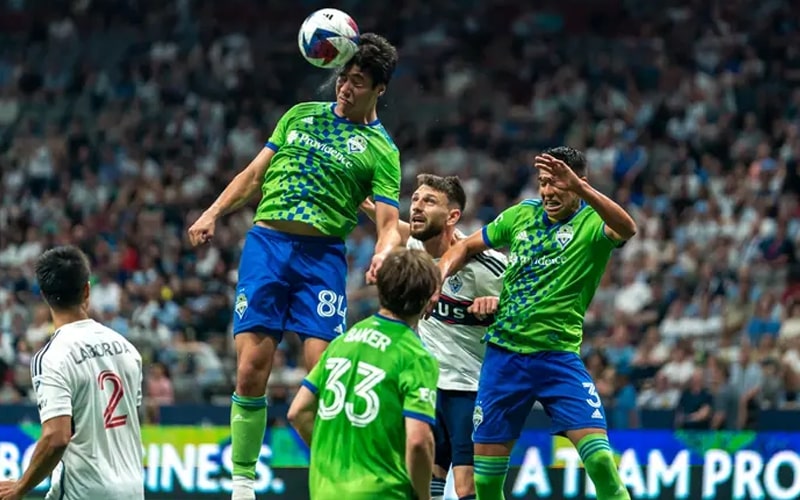The Beginning of MLS Broadcast Deals
MLS was founded in 1993, but it wasn’t until 1996 that the league kicked off its inaugural season. From the beginning, securing broadcast deals was a priority for the league, as television exposure was crucial to its growth and success. The first broadcast deals were signed with ESPN and ABC, providing the league with national exposure on both cable and broadcast networks. ESPN and ABC were committed to showcasing the league, but the initial ratings were not as high as expected.
Despite the lower-than-expected ratings, the league continued to focus on television exposure and secured a new broadcast deal with Fox Sports in 2003. This deal provided MLS with additional airtime on Fox Sports World (now known as Fox Soccer Channel) and regional Fox Sports networks. Soccer America notes that this partnership helped the league build a more extensive reach and increase its television ratings.
2007: A Pivotal Year for MLS Broadcast Deals
2007 was a pivotal year for MLS broadcast deals, as the league signed agreements with Univision and HDNet in addition to renewing its contracts with ESPN and Fox Soccer Channel. ESPN also expanded its commitment to MLS by featuring games on ESPN2 and launching the MLS Primetime Thursday game of the week. ESPN The league’s partnership with Univision proved to be particularly significant, as it provided MLS with access to the growing Hispanic market in the United States. According to Univision, soccer is the most-watched sport among Hispanics in the U.S., making this partnership essential for the league’s exposure and growth.
The Impact of Designated Players on Broadcast Deals
The introduction of the Designated Player Rule in 2007 allowed MLS clubs to sign star players from around the world by paying a portion of their salary above the league’s salary cap. The arrival of players like David Beckham, Thierry Henry, and Robbie Keane significantly increased the league’s global profile and improved its television ratings. BBC As a result, the league was able to secure more lucrative broadcast deals, with NBC Sports signing a three-year agreement to televise MLS games in 2011. NBC Sports
The 2014 Game-Changing Television Deals
In 2014, MLS signed a game-changing eight-year agreement with ESPN, FOX Sports, and Univision Deportes. This deal, worth a reported $720 million, significantly increased the league’s television revenue and guaranteed that every MLS game would be televised nationally. Sports Illustrated The new contracts also included a commitment to broadcast a fixed schedule of games, ensuring that fans knew when and where to find their favorite teams on television.
The Role of Digital Platforms in MLS Exposure
In addition to traditional television deals, MLS has embraced digital platforms to reach new audiences and increase exposure. In 2017, the league signed a deal with Facebook to livestream at least 22 regular-season games on the platform. This partnership allowed MLS to tap into Facebook’s extensive user base, providing fans with an easily accessible way to watch games and engage with the league.
Furthermore, MLS signed a partnership with Twitter in 2018 to stream live matches and produce exclusive highlights and features for the platform. This deal not only provided another platform for fans to watch games but also allowed the league to capitalize on Twitter’s real-time nature, with fans able to engage in conversations about the games and interact with the league and its clubs.
The Impact of Broadcast Deals on MLS Revenue Growth
The evolution of MLS broadcast deals has had a significant impact on the league’s revenue growth. In the early years of the league, television rights fees were minimal, and the league relied heavily on ticket sales and sponsorships to generate revenue. However, the increase in television exposure and the signing of more lucrative broadcast deals have played a critical role in boosting the league’s revenue.
According to Forbes, the average MLS team was worth $313 million in 2019, a 30% increase from the previous year. This growth has been driven in part by the increased revenue from broadcast deals, which the league has been able to reinvest in player acquisition, stadium improvements, and youth development.
The Impact on MLS Expansion and Franchise Valuations
The success of MLS broadcast deals has also played a role in the league’s expansion efforts. As the league has secured more lucrative television contracts, it has been able to attract investment from wealthy ownership groups interested in purchasing expansion franchises. In turn, this has driven up the value of MLS franchises, with the league now boasting 27 teams and plans to expand to 30 by 2023.
According to SportBusiness, the average MLS franchise is now worth $313 million, with some teams valued at over $500 million. This represents a significant increase from the early years of the league when franchise valuations were much lower and expansion fees were a fraction of the current cost.
Challenges and Opportunities for Future MLS Broadcast Deals
While the growth in MLS broadcast deals has been significant, the league still faces challenges in attracting viewership and securing even more lucrative contracts. According to Sports Business Journal, MLS television ratings have seen modest growth in recent years, but they still lag behind other major sports leagues in the United States.
However, with the ongoing expansion of the league, the influx of star players, and the increased investment in youth development, MLS has the opportunity to continue growing its television exposure and attracting more substantial broadcast deals. As the league looks to the future, the continued evolution of its broadcast partnerships will be crucial to its long-term success.




